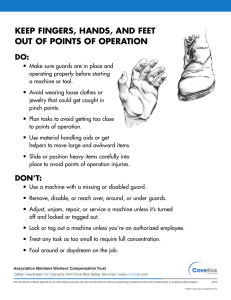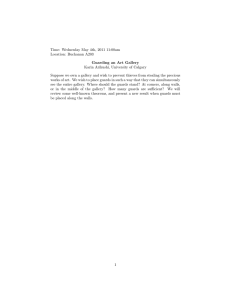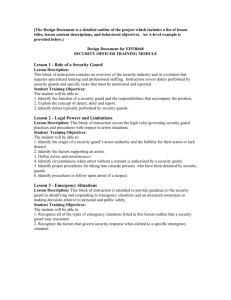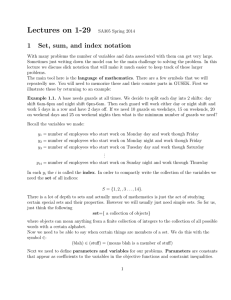New York City Department of Health and Mental Hygiene
advertisement
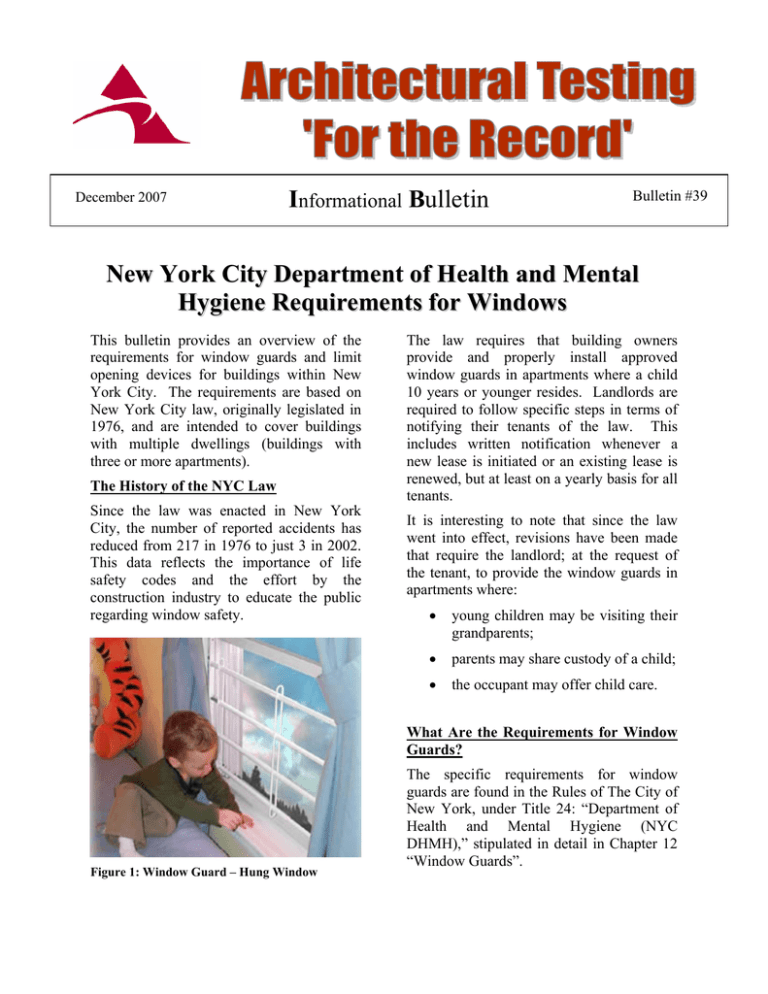
December 2007 Informational Bulletin Bulletin #39 New York City Department of Health and Mental Hygiene Requirements for Windows This bulletin provides an overview of the requirements for window guards and limit opening devices for buildings within New York City. The requirements are based on New York City law, originally legislated in 1976, and are intended to cover buildings with multiple dwellings (buildings with three or more apartments). The History of the NYC Law Since the law was enacted in New York City, the number of reported accidents has reduced from 217 in 1976 to just 3 in 2002. This data reflects the importance of life safety codes and the effort by the construction industry to educate the public regarding window safety. The law requires that building owners provide and properly install approved window guards in apartments where a child 10 years or younger resides. Landlords are required to follow specific steps in terms of notifying their tenants of the law. This includes written notification whenever a new lease is initiated or an existing lease is renewed, but at least on a yearly basis for all tenants. It is interesting to note that since the law went into effect, revisions have been made that require the landlord; at the request of the tenant, to provide the window guards in apartments where: • young children may be visiting their grandparents; • parents may share custody of a child; • the occupant may offer child care. What Are the Requirements for Window Guards? Figure 1: Window Guard – Hung Window The specific requirements for window guards are found in the Rules of The City of New York, under Title 24: “Department of Health and Mental Hygiene (NYC DHMH),” stipulated in detail in Chapter 12 “Window Guards”. Informational Bulletin December 2007 NYC Window Guards and Limit Devices Bulletin #39 Page 2 of 3 For the window manufacturer, retrofitting is probably not an issue; actually the window manufacturer may never hear about the installation of window guards, that is unless they are installed improperly and damage the window operation and/or performance characteristics of the window. Figure 2: Window Guard – For Hung Window There are a number of requirements specified; most of which do not apply to the window manufacturer, however in general window guards or limit stops and the installation of same for any window must protect against the following: • Limit the bottom sash from being able to be raised more then 4-1/2" above the top bar of the window guard; • Resist a load of 150 lbs. applied to any part/member of the window guard assembly; • Restrict the passage of a 5 inch sphere through any opening in the assembly or installation. There is plenty of guidance for the consumer on the New York City DOHMH site as it relates to selecting approved window guards, and there are some cautions about making sure the installation is secure, but no mention of contacting the window manufacturer before installing the window guards to ensure that they do not cause other problems. It is clear that the application of window guards or stops to protect lives is the priority; and rightly so. Unfortunately, there is still the potential for the installation of these devices to have an adverse impact on other performance requirements. Additionally, tamper resistant screws must be used to mount the window guards or stops. Aren’t Window Guards Just Retrofitted? In many cases, the answer is yes, window guards have been retrofitted in existing buildings for a number of years, but new buildings involving new fenestration products must conform to the requirements as well. In simple terms all windows including the first floor bathroom and windows leading onto balconies or terraces must include a window guard. Exceptions are permitted where windows open onto fire escapes or for first floor window openings where the window acts as a “required secondary exit” in buildings where fire escapes are on the second floor and above. Figure 3: Window Guard – Casement Window Are Alternative Devices Allowed? When talking about window guards most of us think of hung windows, but all windows are subject to this law. In some cases a standard window guard just is not suitable; casement windows that swing to the interior are one good example. There are procedures for requesting the approval of window guards for other than Informational Bulletin December 2007 NYC Window Guards and Limit Devices double hung windows, (i.e.; casements, sliders, projected, etc). The following is a summation of the requirements for obtaining approval: • • • • • The application shall stipulate the window type for which the guard is being submitted; The guard submitted shall be of a construction that meets the same criteria regarding the 4-1/2 inch opening limitation, the 5 inch passage restriction and 150 pound load bearing capability stipulated previously; Mounting materials and instructions for installation for each type of window guard must be included with the application (and must be supplied to the consumer); When approved, limiting devices are acceptable in lieu of window guards, however the performance and qualification criteria stated above must be met; The submission of any product to serve the purpose of a window guard or limiting stop needs to include test results from an independent lab along with certification by a Professional Engineer. Bulletin #39 Page 3 of 3 selected based on the type of window the desired function. Window guards stops must to be installed properly tested to verify their ability to meet performance criteria. Architectural Testing can provide the testing and certification of performance needed in conformance with the application requirements. Need More Information? The purpose of this Informational Bulletin is to provide information regarding window safety and the NYC window guard code requirements. The information contained herein is not manufacturer or product specific and is provided as advisory information to our customers. The following websites are sources of information regarding window safety, child safety and window guards: http://24.97.137.100/nyc/rcny/Title24_12-01.asp www.nyc.gov www.consumerreports.org As always, the professional staff at Architectural Testing is available to answer any questions or concerns. Contact us if you would like to request a reprint of this article. Summation of Requirements It is clear that child safety is something of importance to all of us. Window guards perform a vital role in keeping kids safely inside, but the right device needs to be Regional laboratories and offices are located throughout North America (labs in PA, MN, TX, CA, WI, WA, and FL; offices in GA, NC, IL, MO and CA) Visit www.archtest.com for the location nearest you. and and and the Corporate Headquarters Architectural Testing, Inc. 130 Derry Court York, PA 17406-8405 Phone: 717-764-7700 Fax: 717-764-4129
